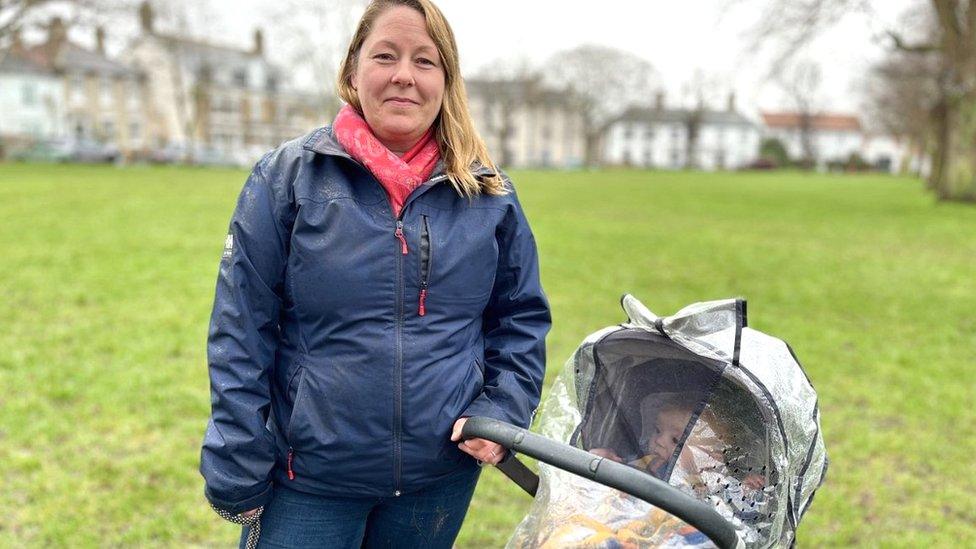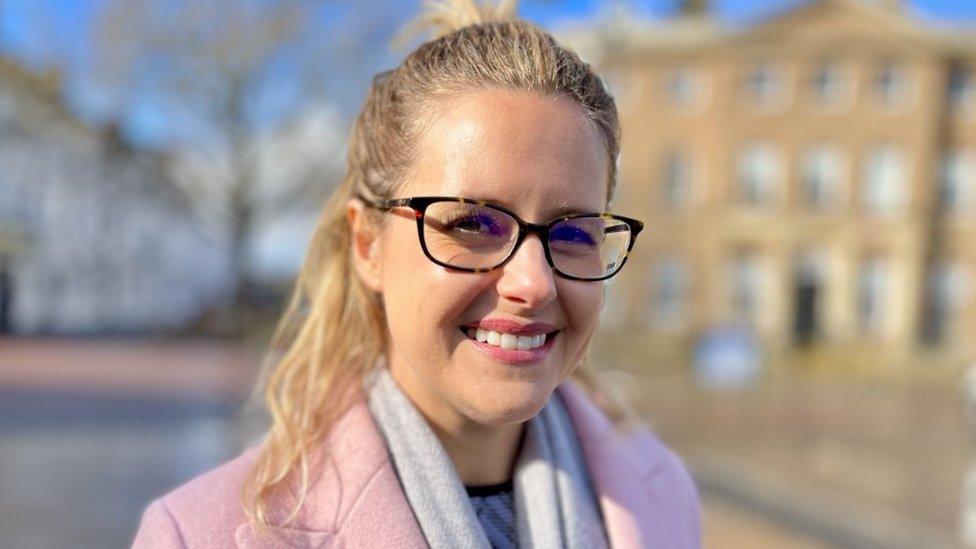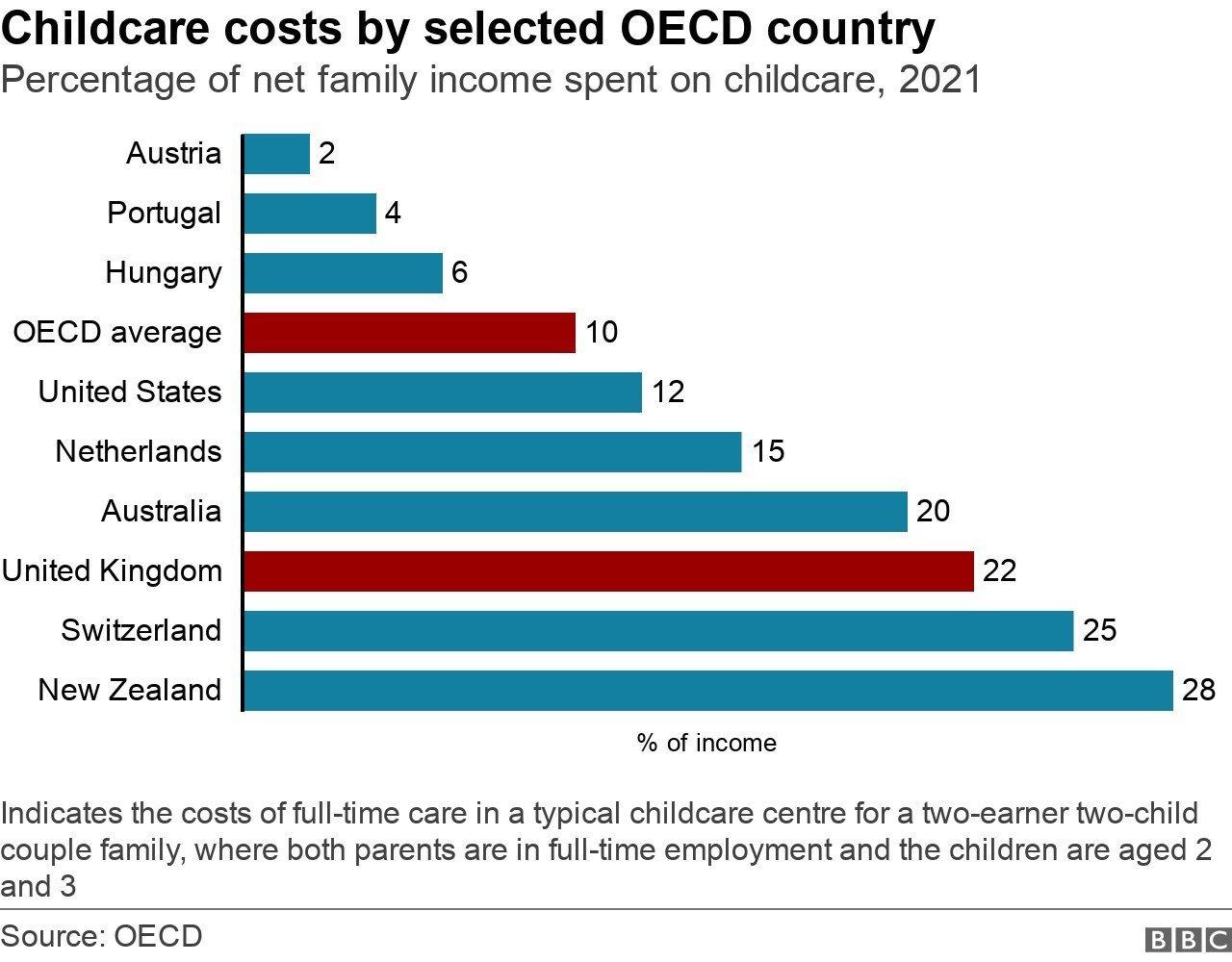Nursery sector in crisis over spiralling costs
- Published

Childcare costs are now £264 per week on average
The early years sector is in "crisis" due to spiralling costs including the price of energy, a nursery administrator has warned.
Lacey Douglass, early years representative on the Norfolk Schools Forum, said nurseries were also facing recruitment problems.
She said: "Nobody wants to work in early years because the pay is so low and the responsibilities are so high."
The government said it had offered billions of pounds of support.
It said it had spent £18bn helping firms such as nurseries with energy price rises and £20bn over five years supporting childcare costs.
A recent report by think tank Onwards found the price of full-time childcare for parents had hit £264 per week or £13,500 a year - 20% higher than five years ago.

Lacey Douglass said nursery costs were rising but funding was not keeping pace
Ms Douglass, who is also administration manager at the Heathers Nursery in Norwich - a not-for-profit provider, said: "We're all in the cost of living crisis. Nurseries aren't excluded from that.
"Our costs have all risen but our funding is static. We had an increase this year, but it didn't touch the sides of the increase in the living wage."
She added: "We've got a recruitment crisis. Nobody wants to work in early years because the pay is so low and the responsibilities are so high."
She said a lot of private nurseries in Norfolk were also seeing their mortgage costs rise and could shut their doors.
"If childcare centres are closing there won't be the childcare providers to enable parents to go back to work," she told BBC Politics East.
"We are part of the infrastructure of this country. We are going to improve the economy if we let parents work - but help them to work."

Helena Deakin goes to a nursery in north Norfolk that is facing closure
Parent Helena Deakin is concerned about her day care centre in north Norfolk, which is facing closure.
It would mean the next nearest centre is about 10 miles (16km) away.
"I work for a big organisation and we talk about how important it is to have women in the workforce," she said.
"I have worked in my career for about 20 years and potentially now I'll have to take a downgrade, to be able to facilitate childcare, and more reduced hours."

Sarah Fairbrother, founder of East Anglian Women in Business, said nurseries were not receiving funding to properly pay staff
Sarah Fairbrother, founder of East Anglian Women in Business, said: "The government do offer 30 free hours for childcare once a child gets to three. But the rate they pay for childcare is nowhere near enough to be able to pay the staff a good wage to encourage good applicants to apply.
"I can see why childcare providers are closing their doors."

The Organisation for Economic Cooperation and Development (OECD) places the UK as the third most expensive country for childcare among its members
A Department for Education spokeswoman said: "We recognise that families and early years providers across the country are facing financial pressures. That's why we have spent more than £20bn over the past five years to support families with the cost of childcare.
"This government has doubled the entitlement for working parents of three and four-year-olds to 30 hours and introduced 15 free hours a week for disadvantaged two-year-olds.
"On top of this, working parents on Universal Credit may be eligible for help with up to 85% of their childcare costs."
You can see more on this story on Politics East on BBC One on Sunday, 5 March at 10:00 GMT, with it also available on BBC iPlayer afterwards.

Find BBC News: East of England on Facebook, external, Instagram, external and Twitter, external. If you have a story suggestion please email eastofenglandnews@bbc.co.uk, external
- Published15 February 2023

- Published30 January 2023
